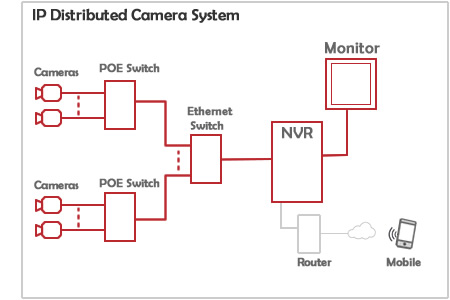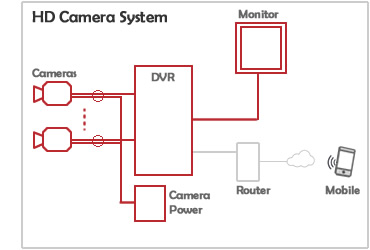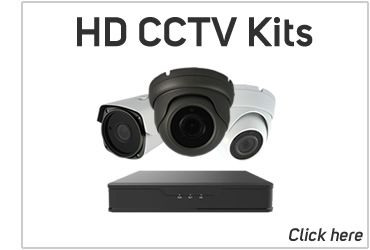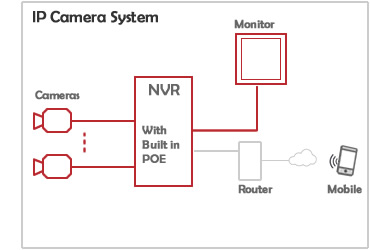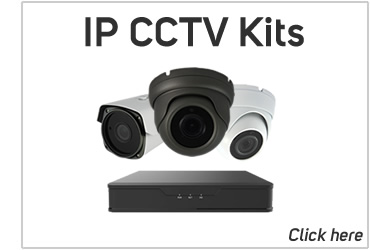IP cameras have the advantage over HD Over Coax systems in terms of cabling and resolutions; however, a major drawback with IP systems comes in terms of network knowledge required when things don't work out.
IP cameras capture video image, compress and transmit in digital format over the network. The recorder is programmed with IP addresses to receive these video streams and record them to NVR (network video recorder). Whereas HD cameras have to be connected directly to the recorder and the recorder is responsible for collating picture information, compression and storage.
IP CCTV is more suitable for people with network knowledge, who have structured cabling in place or have experience of network cabling. IP CCTV systems can be highly flexible; they offer great savings on installation costs and time, especially on large sites. Avoid the need to re-cable for additional cameras; use WiFi bridge to link buildings and then have multiple cameras over it. By utilising POE, long cable length can easily be achieved and more.
With HD CCTV, each camera signal has to be wired back to the recorder. HD systems can be simpler to install and manage.
Both HD and IP can be accessed over the network, mobile devices and tablets. Here are some illustrations of HD and IP Systems.
